Minister seeks damage limitation after immigration vote
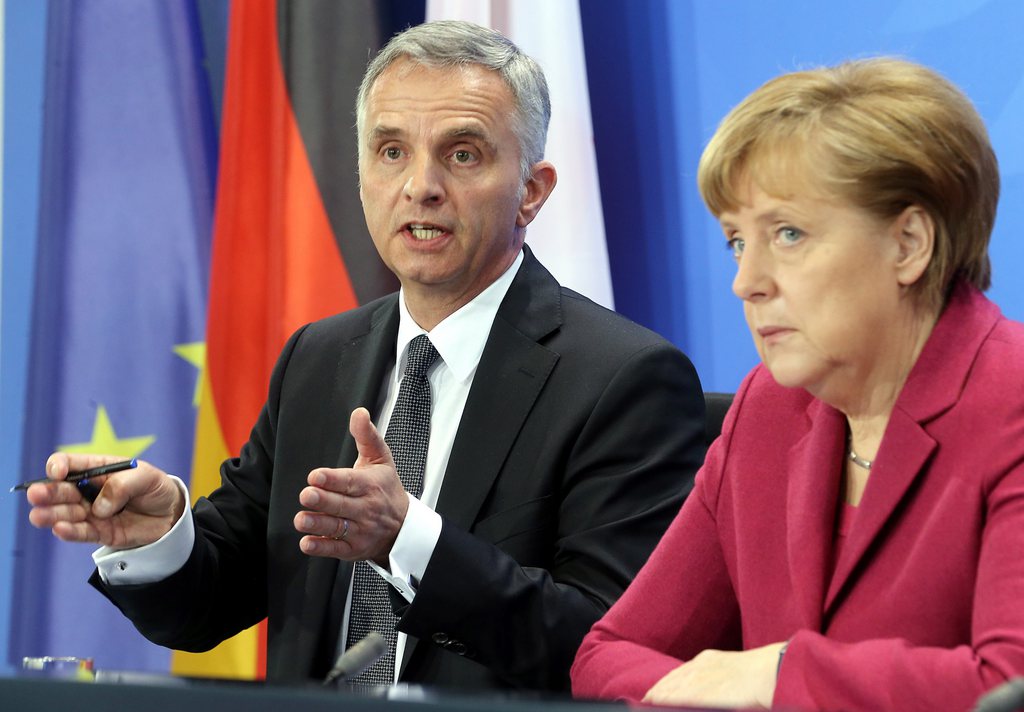
Foreign Minister Didier Burkhalter has won assurances from neighbouring Germany that Berlin will not push for hasty sanctions against Switzerland following a nationwide vote ten days ago on curbing immigration from the European Union.
Burkhalter, who acts as Swiss president this year, held talks in Berlin and Paris on Tuesday to explain the government’s refusal to sign a labour market accord with new EU member Croatia as a result of the ballot on February 9.
He pledged to find a solution to apply the vote result which is not in breach with a key accord on the free movement of people from the EU.
Germany’s Chancellor Angela Merkel for her part urged patience, saying Europe’s own interests were best served by waiting to see how the Swiss implement the vote result.
“It can’t be that because one side did something in one specific area that the other side says nothing works in other areas,” Merkel said.
“First of all we need to see how Switzerland implements this vote over the coming three years. I would advise against deciding on consequences at the very beginning and not waiting for the implementation process in Switzerland,” she said.
“The challenge will now be that we deal with the results in a way that relations between the EU and Switzerland remain as intense as possible with respect for the vote,” said Merkel.
She promised to work for a solution that respects the Swiss vote “but does not further damage the EU’s own interests,” she added.
However, Germany’s foreign minister Frank-Walter Steinmeier noted the vote did pose a serious problem and he called on the Swiss government to present possible solutions.
Principles
Later on Tuesday Burkhalter travelled to Paris for a meeting with his French counterpart, Laurent Fabius.
Burkhalter told journalists that Fabius insisted on the freedom of movement as a central European policy pillar. The Swiss foreign minister described the meeting as the beginning of a process.
Ten days ago, Swiss voters narrowly came out in favour of re-introducing quota for immigrants from the EU.
Observers say the proposal by the rightwing Swiss People’s Party tapped into concerns that the country’s culture is being eroded by the high number of foreigners who account for about 24% of the population.
The EU has frozen talks with Switzerland on a planned electricity accord following Swiss voters’ rejection of free access for EU citizens to the Swiss labour market.
Brussels also stopped efforts to include Switzerland in a €94.7 billion research and education scheme.
In a letter to the government, the heads of Switzerland’s universities and colleges as well as the academies and the National Science Foundation expressed their concern that Switzerland’s reputation and academic competitive edge would suffer seriously if the country were cut off from EU research and education programmes.
An agreement on Swiss participation in a EU culture scheme, including the funding of film productions, has also been put on hold, according to EU officials.
Brussels refuses to begin talks with Switzerland on a renewal of the accord, in place since 2006 and amended in 2009.
Economic interests
Burkhalter warned of retaliatory measures against non-EU member Switzerland, adding the importance of the trade volume between Germany and its small southern neighbour as well as that about 350,000 Germans currently work in Switzerland.
He said it was in nobody’s interests to suspend cooperation on areas like research or power generation that affected competitiveness.
Swiss business leaders fear access to foreign professionals will be shackled by red tape and bilateral accords with the EU, the country’s biggest trading partner, will be undermined.
Ratings agency Moody’s warned on Tuesday that immigration curbs in Switzerland will hit the economy and the country’s key banking sector.
It said: “The introduction of quotas on labour immigration could reduce housing demand, thereby exerting pressure on residential house prices, and potentially leading to a faster-than-anticipated slowdown in residential housing markets.”
Universities have also expressed concern that Switzerland’s reputation and academic competitiveness could be seriously damaged if the country were shut out from EU research and education cooperation.
On ice
Since 2002, Switzerland has had a treaty with the EU which allows for the free movement of labour.
But the recent vote threatens the accord, and with it a package of other deals that cover economic and technological cooperation, public procurement, and a host of other areas.
European Commission President José Manuel Barroso has warned the February 9 vote will have “serious consequences” for ties with the 28-member EU, which has already postponed talks with the Swiss on multibillion-dollar research and educational schemes.
Brussels has also suspended negotiations with Switzerland on a cross-border electricity agreement which had been aimed at closer power trading ties with the country, as well as an amended accord on cooperation on a EU culture funding programme.

In compliance with the JTI standards
More: SWI swissinfo.ch certified by the Journalism Trust Initiative
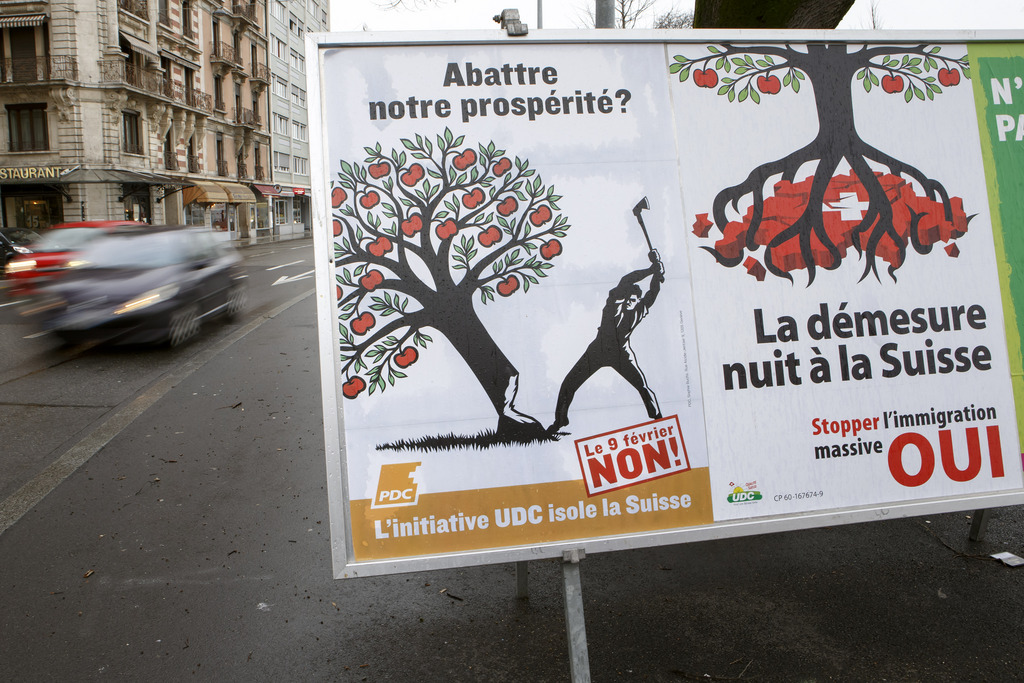
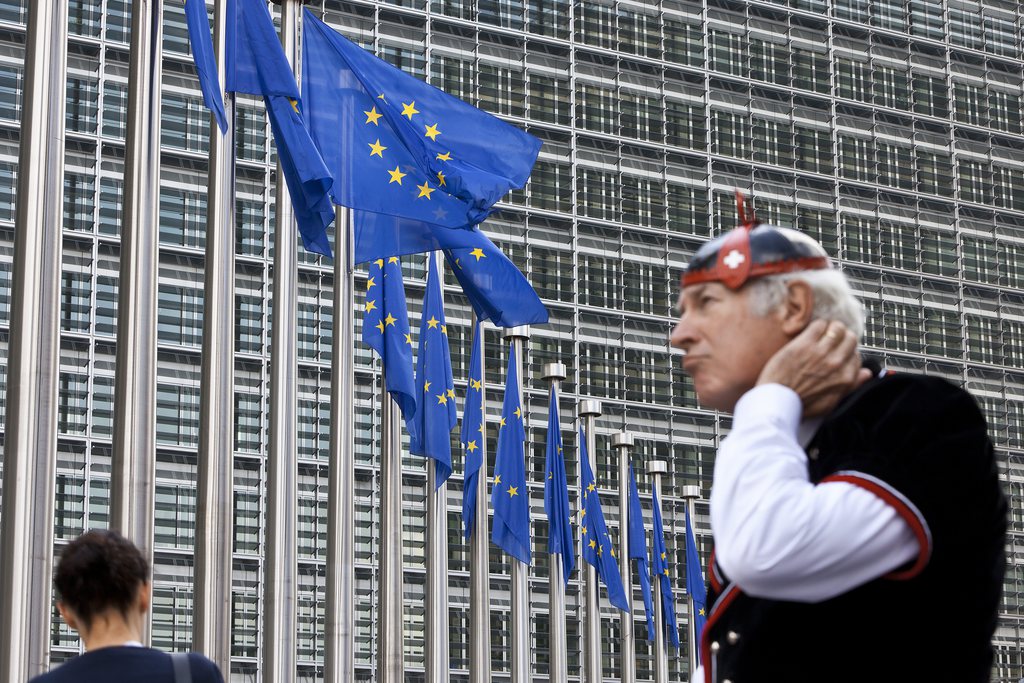
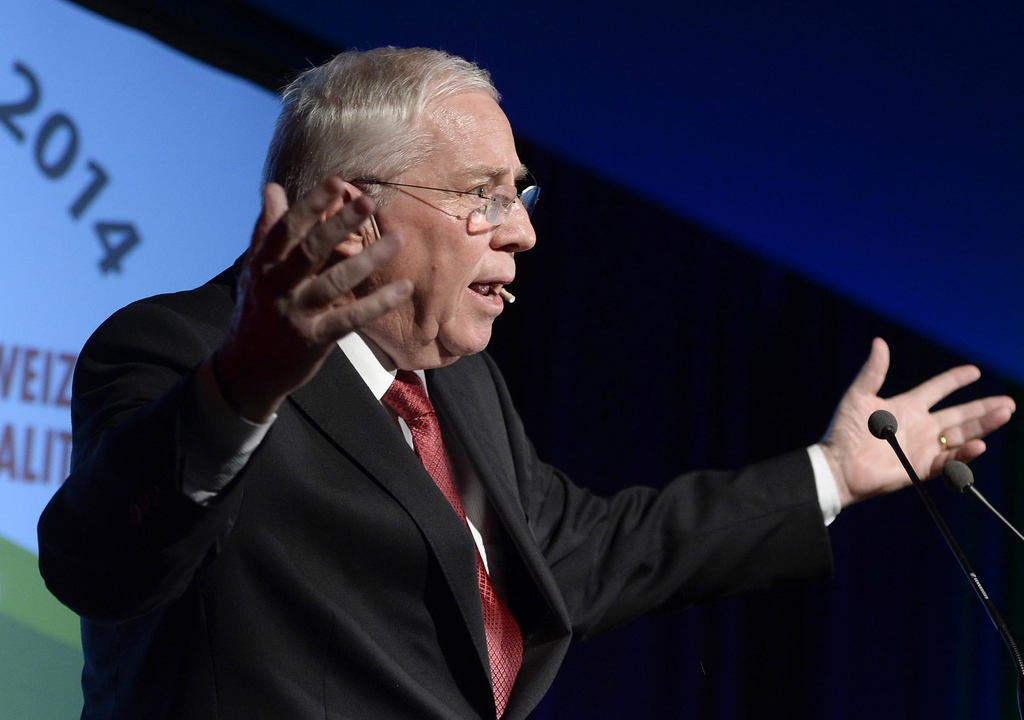
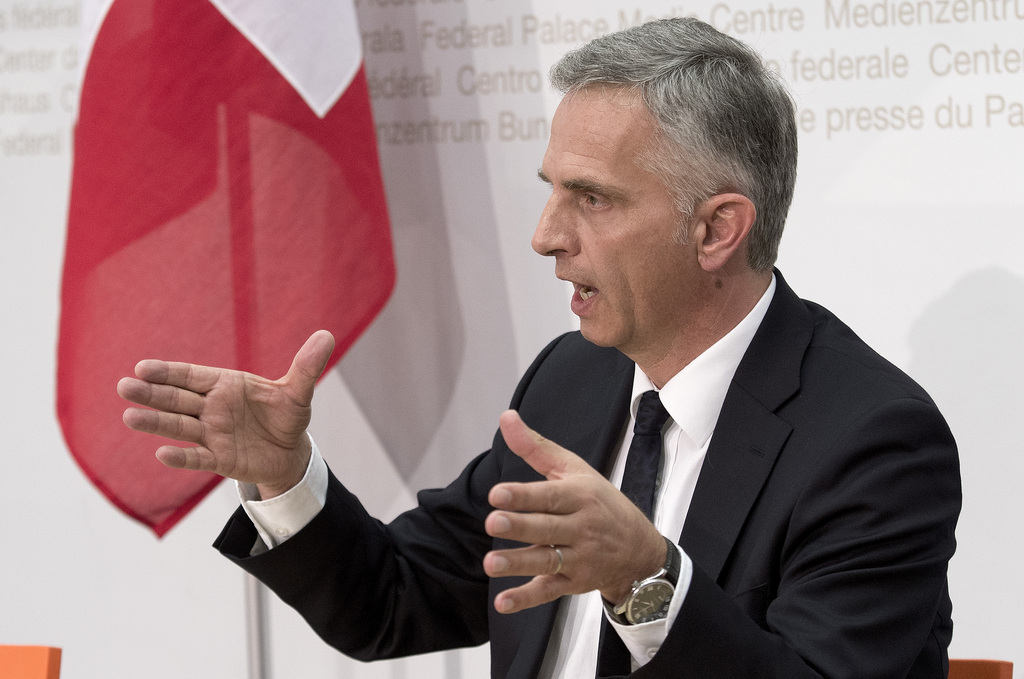
You can find an overview of ongoing debates with our journalists here. Please join us!
If you want to start a conversation about a topic raised in this article or want to report factual errors, email us at english@swissinfo.ch.